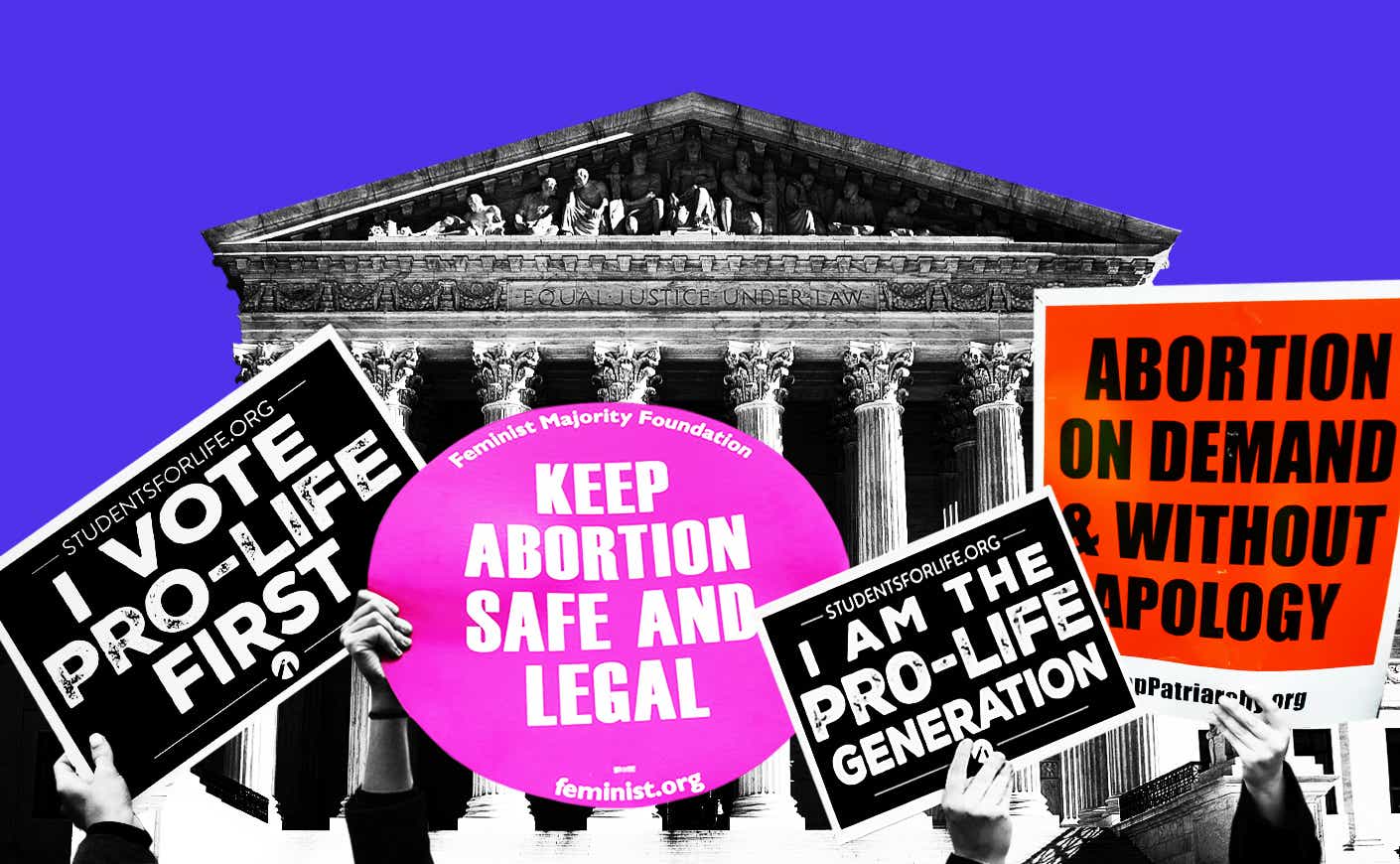The clash over abortion rights is always a fiery one, and a pack of conservative lawmakers turned up the temperature on Thursday by urging the Supreme Court to overturn Roe v. Wade next year, when the justices take up a controversial case out of Mississippi. Here’s what you need to know about what’s shaping up to be a landmark decision.
Why is Roe v. Wade in danger of being overturned?
In its next term, SCOTUS will consider a Mississippi law that bans most abortions after 15 weeks of pregnancy. The only exceptions — medical emergencies or “severe fetal abnormality” — do not include rape or incest. Two lower courts have already ruled against Mississippi due to the precedent set by Roe v. Wade, the 1973 case which legalized abortion nationwide prior to viability, generally accepted to be around 24 weeks of pregnancy.
What is the latest messaging from Republicans?
In total, 184 House members, 44 senators, and 12 governors — all Republicans — argued yesterday that the Supreme Court should eliminate federal protections for abortion and allow states to create their own laws about the procedure. Historically, SCOTUS is more likely to uphold precedent, but the GOP lawmakers are hoping the court’s current 6-3 conservative majority will be more amenable to striking down Roe v. Wade.
What will happen if Roe v. Wade is struck down?
A 2019 report from the Center for Reproductive Rights found that without the protection of Roe, abortion would likely remain legal in 21 states, while bans would be imposed in 24 states and three territories. In the other five states, the procedure would be “accessible but vulnerable.”
Abortions would largely remain available to women with the privilege to travel across state lines, while lower-income communities would bear the burden of new restrictions — and potentially face the harsh reality that was common pre-Roe. “That lived experience of what was happening pre-1973 — the back-alley abortions, the very dangerous abortion — is not the standard experience right now, but it could be,” Alexis McGill Johnson, the president of Planned Parenthood, told us earlier this year.









